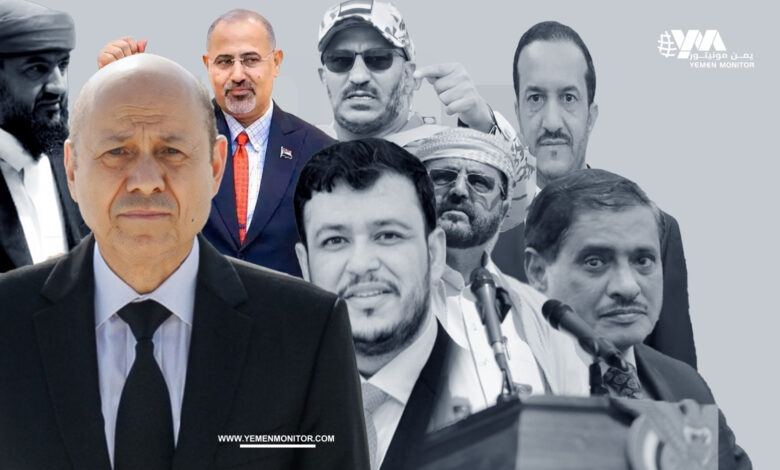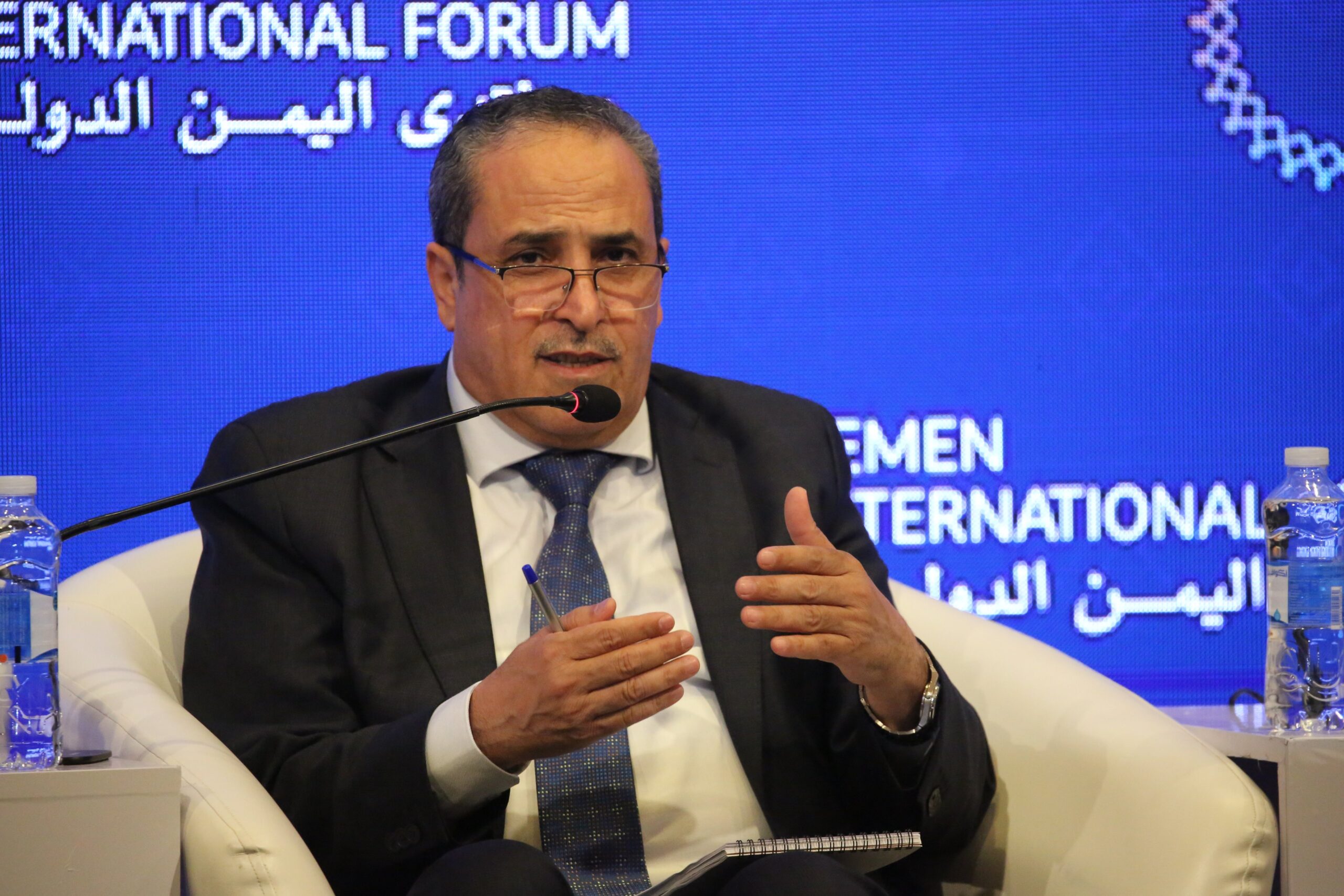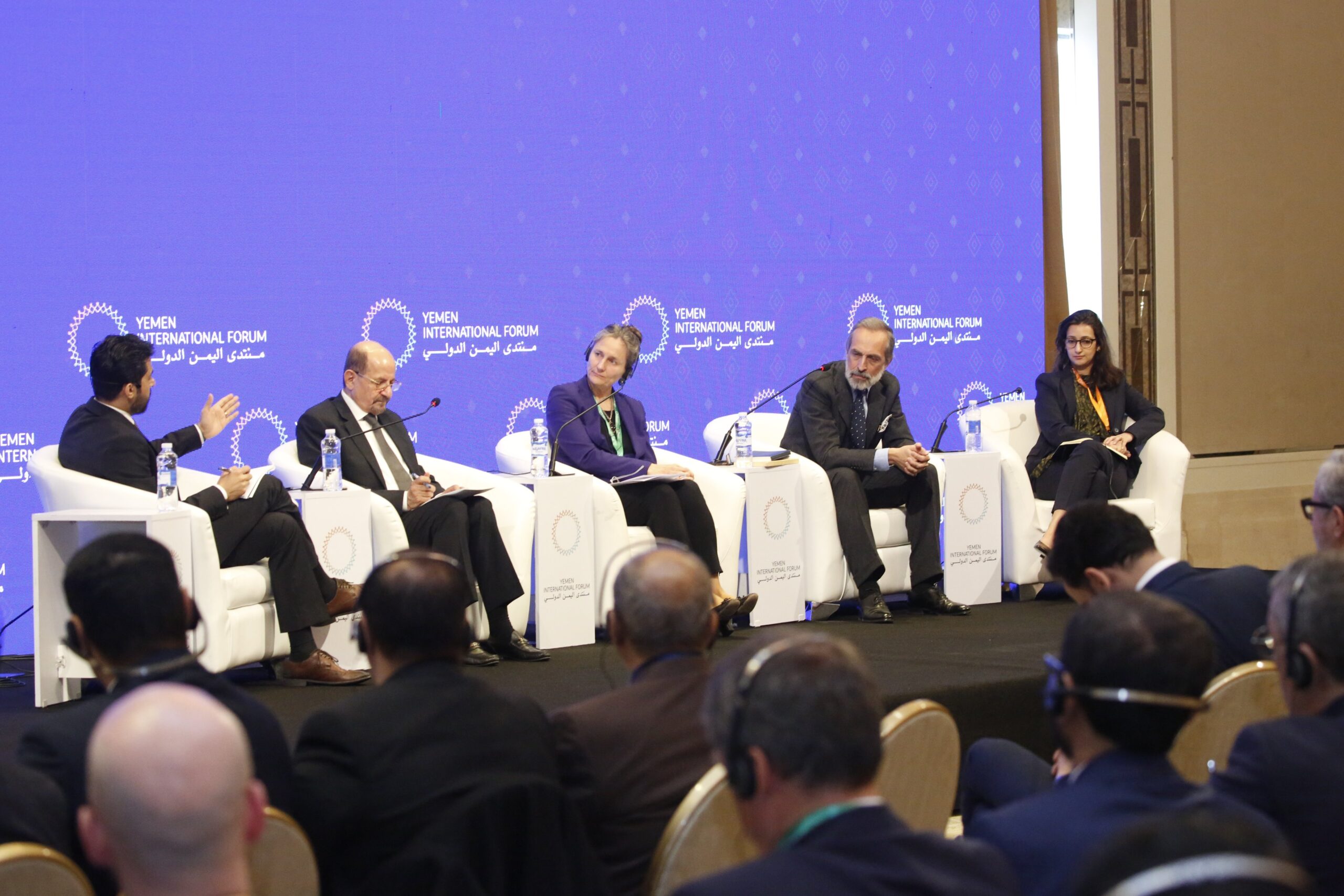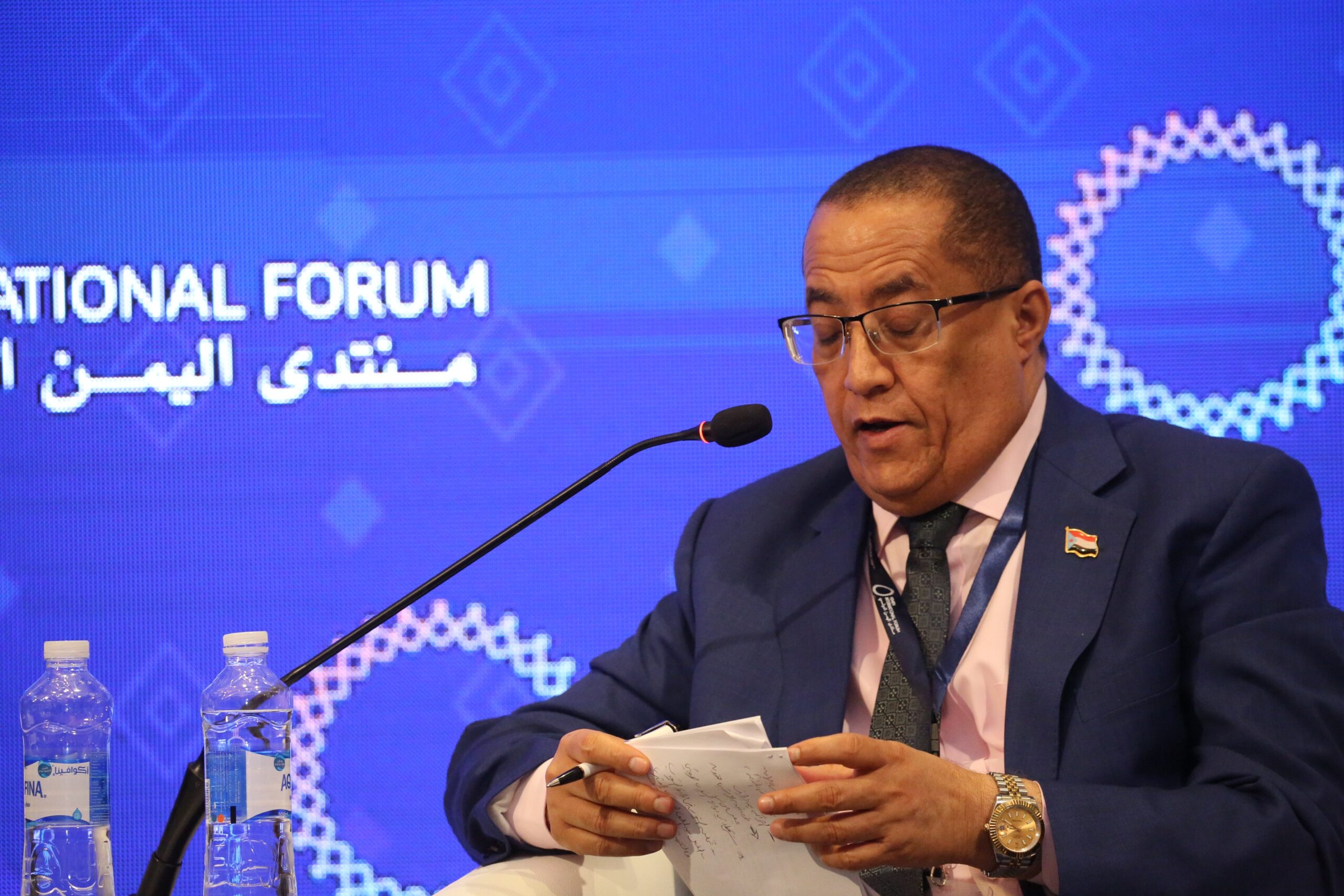Presidential Leadership Council Over 3 Years… Accusations of Failure and Incompetence Amidst Deep Political Frustration

Yemen Monitor/Reporting Unit/Special:
Politicians and leaders of Yemeni parties have agreed that the Presidential Leadership Council has failed to fulfill its duties over the past three years, pointing to the reasons for the failure of the council, which consists of eight members representing the parties forming the internationally recognized government.
This came during the Yemen International Forum in the Omani capital, “Amman,” organized by the Sana’a Center for Strategic Studies.
Many at the conference, including officials who have representatives on the Presidential Leadership Council, called for its reform, as reaching an agreement between eight people has caused the council to fail in achieving many of its goals since its establishment three years ago.
Yemeni Foreign Minister Shaye’a Al-Zindani, speaking about the status of the Leadership Council, said: “There is a conflict over powers… and shortcomings in the mutual relations between the various authorities. There are complications in the decision-making process by the authorities.”
For his part, Abdul Razzaq Al-Hejri, a member of the Supreme Authority of the Yemeni Islah Gathering, said that one of the reasons that weakened the Leadership Council was that it did not approve the regulation governing its work, which is the decisive factor in controlling the course, even though the decision to transfer power stipulated 45 days for its completion.
Al-Hajri pointed out that returning to the document establishing the Presidential Leadership Council confirms that it has not accomplished most of the tasks assigned to it.

The Mission of the Leadership Council
Nasser Al-Khubji, head of the Political Authority of the STC (supported by the UAE), affirmed that “the Presidential Leadership Council is incapable and has failed to deliver anything,” noting that “the council has no vision for dealing with the Houthis, neither politically, militarily, nor economically.”
Abdullah Noman, Secretary-General of the Nasserite Organization, said that the Leadership Council as a collective entity replaced the president, and its legitimacy is derived from ending the coup and restoring state rule. He pointed out that his party refused to sign the power transfer agreement in Riyadh in 2022, considering it “the strangest coup in history.”
Al-Hejri from the Islah Party said: “The council’s mission is to work to restore the state and its institutions, peacefully or through war,” from the Houthis. He pointed out that the positive aspect of the Leadership Council is the cessation of military confrontations in some governorates, and the confrontations have become in institutions, discussions, opinions, and projects.
Abdul Rahman Omar Al-Saqqaf, Secretary-General of the Yemeni Socialist Party, agrees with him, stressing that the announcement of the council was able to “solve the most important problems that the state was completely collapsed, and that sub-state forces spread even in the liberated areas, so the arrival of the Presidential Leadership Council was able to bring these forces that were outside the state into the legitimacy of the state, to the extent that these forces gained local legitimacy.”
Al-Saqqaf pointed to a different approach, stating that the presence of members in the Presidential Leadership Council due to their personal status and not as components on the ground has caused “problems” for the council.

Institutional Work in Aden
Regarding the reasons for failure, Al-Khubji from the STC believes that the absence of “a local will for the Leadership Council, but rather its coming according to a regional will, is the reason for the council’s failure.”
Abdul Razzaq Al-Hejri from the Islah Party said: “The problem that has hindered the country is that instead of heading towards projects that advance Yemen, they have turned to quotas, and each party wants to fill the void with its members.”
Foreign Minister Al-Zindani points out that the lack of institutions in Aden and their completion hinders the work of the government and the Presidential Leadership Council.
Al-Khubji complained that members of the Leadership Council and the government do not want to return to Aden. The city and neighboring governorates are under the security control of the STC.
On the same point, Al-Hajri says that the failure to prepare Aden to be the capital of the Yemeni state, to which all institutions return, is one of the reasons for the weakness of the Presidential Leadership Council, pointing out that there are objective and subjective obstacles.
He stressed that unifying the military decision under the administration of the Supreme Commander of the Armed Forces, the Ministry of Defense, and the Ministry of Interior is one of the solutions to get the Political Leadership Council out of its current situation, pointing out that the operations body that was established does not rise to the required operations room.
The Islah leader considered that the failure to complete some of the provisions of the 2019 Riyadh Agreement related to its security and military preparation. He pointed out that the government is more present than others in terms of presence on the ground, while the Presidency Council is semi-mobile, while the House of Representatives has not been allowed to return to exercise its role from inside Yemen, neither in Aden nor elsewhere.
Proposal for Two Governments and the Problematic Nature
The STC, which seeks the secession of southern Yemen from its north, rejects the holding of sessions of the House of Representatives (Parliament) in the areas under its control, considering its convening a confirmation of Yemeni unity and the consolidation of the results of the 1994 war!
Al-Khubji from the STC presented a proposal to form two governments, the first a “war government” in Marib and Taiz with cadres from the northern governorates, and the second a “development” government with southern cadres in the southern governorates – referring to a government under its direct control in two states!
Al-Khubji said that the STC bears the burden of the Presidential Leadership Council’s failure due to its presence within the Leadership Council and the government, while others do not bear the burden of this failure!
The STC promotes the replacement of Parliament with the “Consultation and Reconciliation Authority.” This authority was established under the transfer of power from President Abdrabbuh Mansur Hadi to the Presidential Leadership Council and consists of fifty members, including party, parliamentary, diplomatic, tribal, and human rights leaders, whose mission is to “support the Presidential Leadership Council” as an area of activity for parties and their unification.
Abdul Rahman Al-Saqqaf from the Socialist Party said: “The leadership style of the Consultation and Reconciliation Authority has proceeded as if it were subordinate to the Presidential Leadership Council, and not a relatively independent force from it, and from the first moment there was also a kind of harassment between some of them, and this is an important point.”
He pointed to another problem: “In the statement that was issued or the presidential declaration document, it gave the right to the members of the Presidential Leadership Council, in the event of their disagreement, to seek the help of the Consultation and Reconciliation Authority to solve this problem, but unfortunately, instead of the Consultation and Reconciliation Authority attending the presidency meetings with one voice, they made them attend with five voices, and this means that the Presidential Leadership Council has become composed of 13 votes instead of 8, so instead of supporting them, it became part of the problem.”

Corruption
Al-Zindani said that one of the biggest issues facing the current government and the eight-member Presidential Council, headed by President Rashad Al-Alimi, is corruption.
Last month, the government revealed investigations into widespread government financial corruption cases, including embezzlement, mismanagement of public funds, and money laundering.
Al-Zindani added, “There is a culture of corruption, not just a phenomenon.”
He continued, “In my opinion, corruption is one of the most important things that prevent the state and the government from functioning.”
Al-Khubji, a leader in the STC, pointed to a conflict between the head of the Presidential Leadership Council, Rashad Al-Alimi, and Prime Minister Ahmed Awad bin Mubarak.
Despite the deep frustration towards the current leadership, it is still unclear whether Yemen will see a change in the forces opposing the armed Houthi group in Yemen.
Noman from the Nasserite Party said: “We fear another regional intervention that will move us from legitimacy to other until we reach illegitimacy.”
Regarding solutions to activate the Presidential Leadership Council, Abdul Razzaq Al-Hajri stressed the importance of unifying military forces under the Ministry of Defense and Interior, resuming oil exports by any means, activating the House of Representatives, and activating and restructuring oversight bodies, namely the Central Organization for Control and Auditing, the Anti-Corruption Authority, and the Tenders Control Authority.




